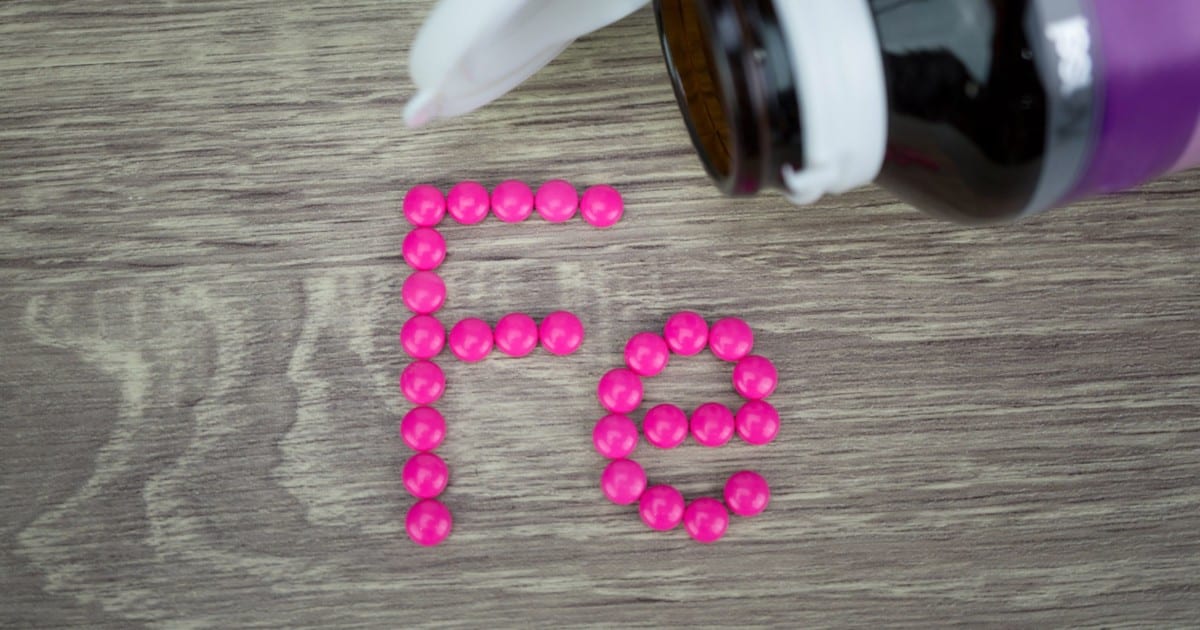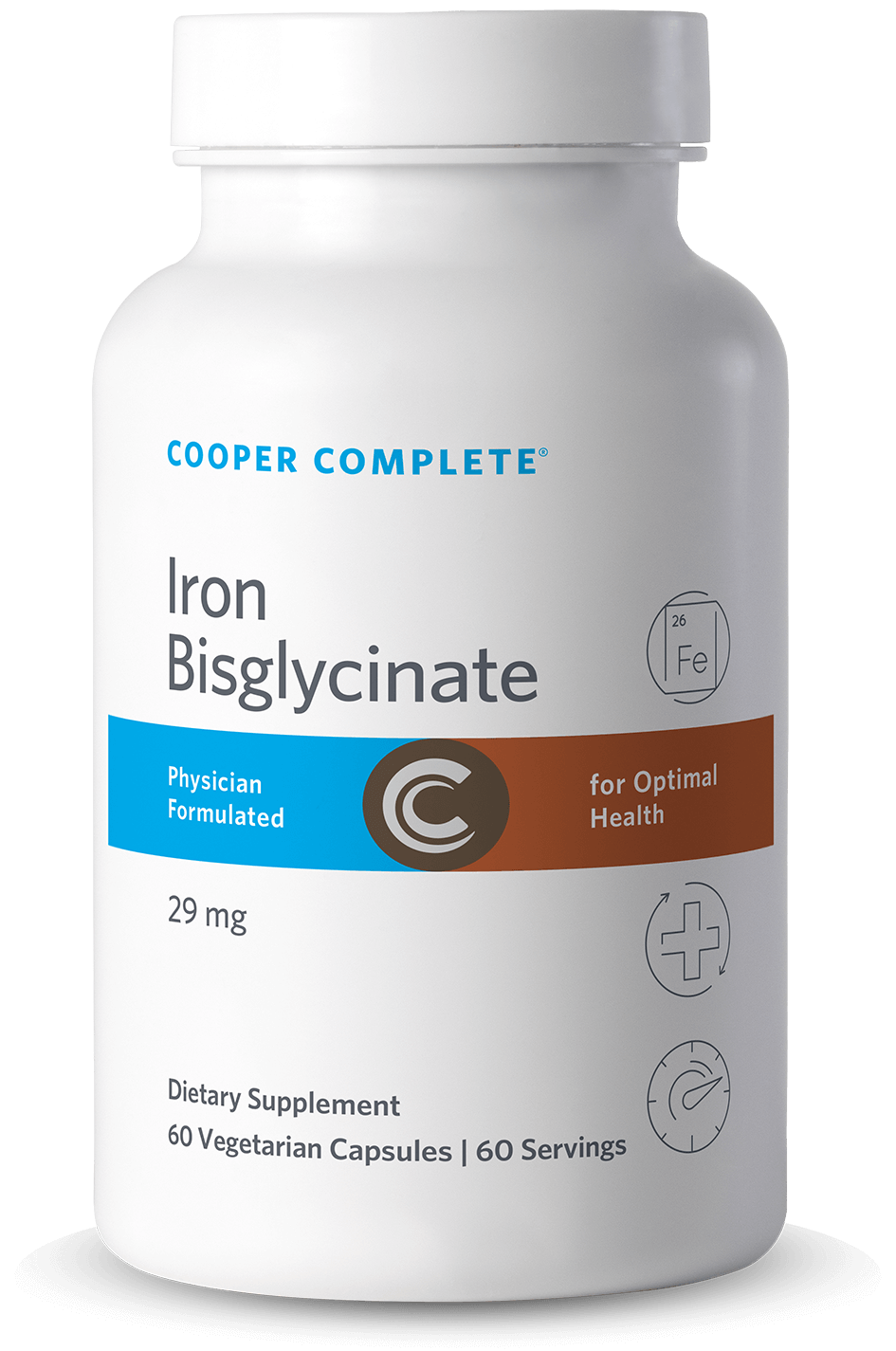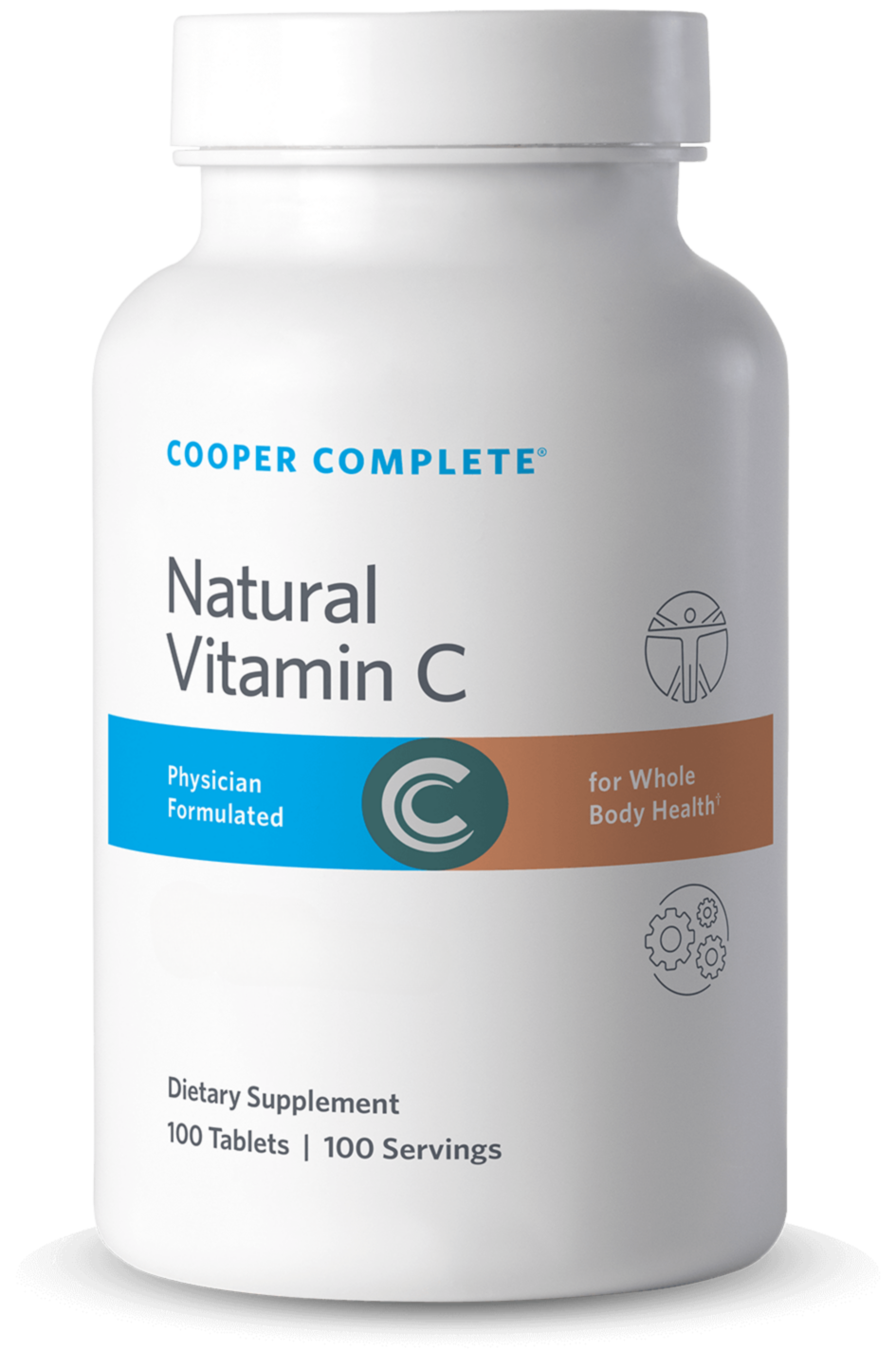Iron Deficiency – Iron and Its Important Role in the Body

Iron is an essential mineral and handles the task of transporting oxygen to the muscles and organs. Iron also plays a role in the nervous system, as iron levels impact dopamine, norepinephrine and serotonin levels. If the iron content in our blood falls, we may feel tired or have reduced energy, and our immune system becomes impaired. A deficiency may be caused by iron deficiency anemia or anemia associated with chronic disease.
Forms of Dietary Iron
There are two forms of dietary iron: heme and non-heme. Heme iron sources come from animal foods (meat, fish, and poultry) while non-heme iron is found in non-meat foods such as beans, lentils, yeast-leavened whole grain bread, dried fruits, broccoli, spinach, and other leafy greens, strawberries, nuts, and enriched pasta, rice, and cereals. While our diets contain far more non-heme iron, this non-meat-based iron is not as readily absorbed by our bodies. Individuals who follow a diet completely free from any animal product (including eggs and dairy) are most likely to have an iron deficiency, but lacto-vegetarians (who include eggs and dairy in their diet) also have an increased risk of being iron deficient. Non-heme iron absorption is improved with vitamin C.

Iron Bisglycinate Supplement 29 mg
Iron Bisglycinate Supplement contains 29 mg of gentle and highly absorbable Ferrochel® (a patented chelated iron in the form of iron bisglycinate) intentionally designed to avoid gastric upset or constipation.
$16.98 Add to cartHealthy adults typically absorb about 10 to 15 percent of the dietary iron consumed each day. Current storage levels of iron have the greatest influence on our absorption – when our levels are low, iron absorption increases; when the levels are high, absorption decreases.
Iron Recommended Daily Allowance (RDA)
The Recommended Daily Allowance (RDA) of iron for women 19 to 50 years of age is 18 milligrams (mg) per day, while men ages 19 and older, and women 51 years and older have a requirement of eight mg per day. The higher RDA for women in their childbearing years is due to blood loss that occurs through the monthly menstrual cycle. The World Health Organization considers iron deficiency to be the largest international nutritional disorder, and worldwide, as much as 80 percent of the population may be iron deficient.
In the U.S. about five percent of women and two percent of men have anemia, caused by a prolonged and severe iron deficiency. If we consume less than our body needs, or absorption and storage are negatively impacted, a gradual deficiency will develop. For those who have a deficiency, supplemental iron can be tremendously helpful in restoring appropriate iron levels.

Natural Vitamin C Supplement
Natural Vitamin C Supplement contains 850 mg of vitamin C (as calcium and magnesium ascorbates), plus citrus bioflavonoids to support cells, immune health, and healing.†
$29.98 Add to cartIt’s counterintuitive, but the amount of iron our body absorbs decreases with increasing doses, so when taking supplements it’s helpful to take the daily dose in two or three equally spaced doses.
What do I do about an Iron Deficiency?
In the Cooper Complete® line of nutritional supplements, Cooper Complete With Iron and Basic One With Iron are multivitamin and mineral supplements that contain 18 mg of iron. We recommend that women in their childbearing years who have a monthly cycle take a multivitamin and mineral supplement with iron. Individuals who have been told by their physician to take iron supplements will also want to select one of these formulations.
For those who need additional iron, there is a standalone Iron supplement from Cooper Complete that can provide 29 mg of iron per capsule.
Is there such thing as too much Iron?
Because iron is so important in our overall bodily function, the instinct might be to add iron to the routine. However, excessive iron intake can lead to toxicity and cause a host of serious medical problems, including congestive heart failure, coronary heart disease, and cirrhosis. When taking iron supplements, it’s important to have regular follow-ups with a physician so that blood testing can be completed to evaluate levels.
